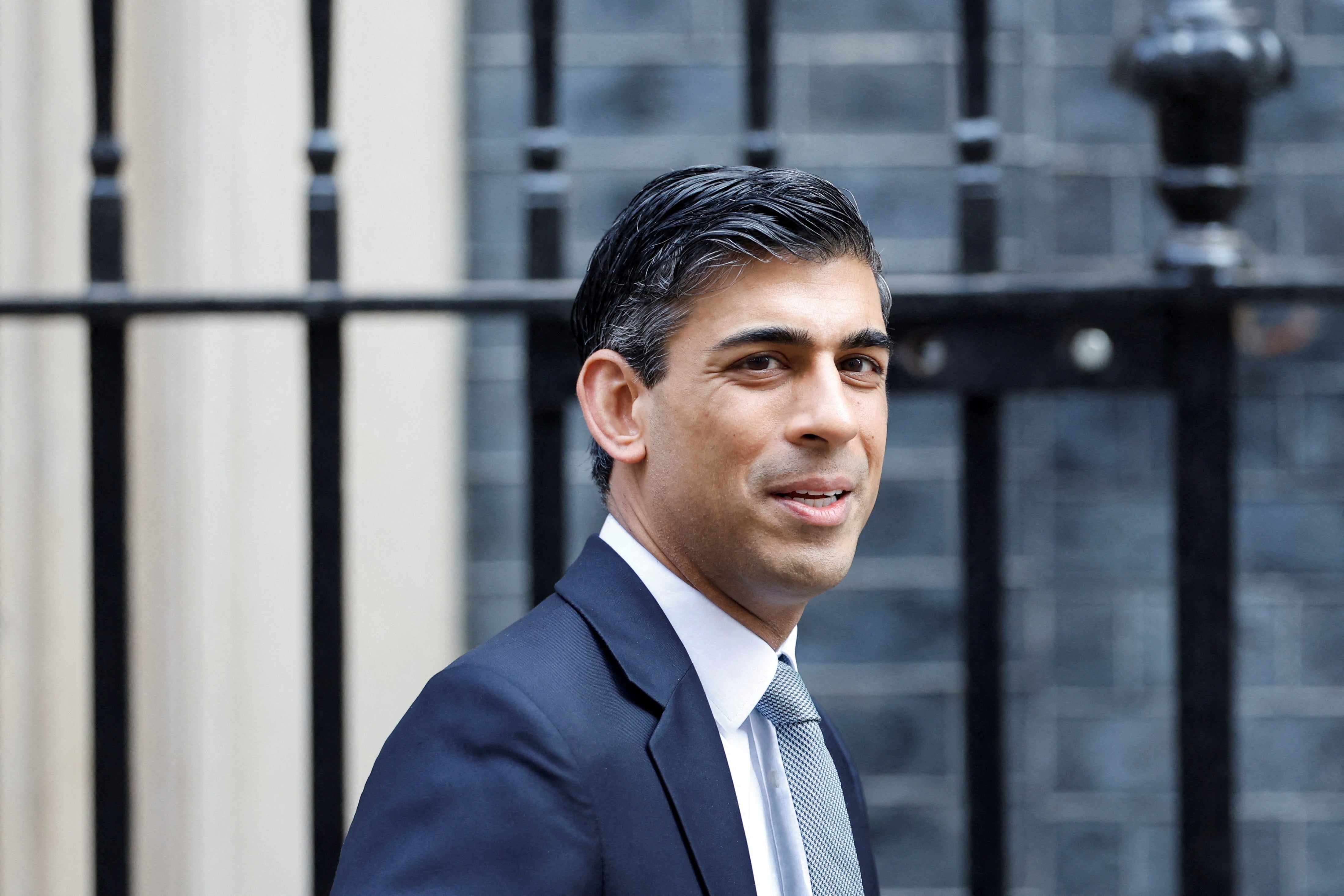The latest tax rise marks the suspension of Rishi Sunak’s leadership campaign
As national insurance goes up – the chancellor’s prospects go down, writes John Rentoul


There was a moment, in the days before 25 January, when Rishi Sunak had a realistic prospect of being prime minister by now. That was the day Dame Cressida Dick, the Metropolitan Police commissioner, announced that she was investigating the Downing Street parties.
It came as such a surprise that it took a day or two for everyone to realise that the police investigation meant that Sue Gray’s civil service report would have to be filleted before publication – and that Boris Johnson had therefore avoided a vote of no confidence among Conservative MPs, because the most embarrassing details of lockdown law-breaking would be withheld for the time being.
That was the day, then, that the chancellor’s leadership hopes were postponed, but it is only now that his undeclared leadership campaign has been suspended. The prime minister’s position is not in immediate danger, but even if it were, it is no longer obvious that Sunak would win the contest to succeed him.
National insurance contributions go up today in one of the biggest peacetime tax rises. In January, Sunak seemed well placed to win the argument for the rise. He had done the bold and right things to protect people’s jobs during the pandemic, and although people might not exactly welcome it, most of them might accept that there was a price to be paid – not least in the form of higher spending on the NHS to cope with the backlog.
That simple message was slightly muddled by the prime minister insisting that part of the tax rise be allocated to subsidise social care for richer homeowners. But it could have worked politically if Sunak had had the courage of his New Labour convictions.
Unfortunately for him, he is not really New Labour, despite saying a lot of New Labour things during the pandemic about the “overwhelming might of the British state” being “placed at your service”. So he took fright at the Conservative backbench revolt against the tax rise.
There is a lesson in politics here. Sunak and Johnson worked together, despite the tension between them, to bounce the tax rise through cabinet and parliament with a lightning strike in September. Tory MPs didn’t like it, but they voted for it and the job was done. It was only then that the chancellor allowed himself to be driven off course.
Even before the war in Ukraine, the energy crisis increased the pressure on Sunak to cancel the tax rise in the spring statement. He resisted the pressure until the last moment, when he half-conceded. Most of the visible part of today’s tax rise will be reversed, therefore, in three months’ time. In July, 70 per cent of workers paying national insurance will end up better off than they were yesterday, when the threshold for contributions is raised to the same level as that for income tax.
This chaotic retreat put Sunak in the worst of all possible worlds. He said he needed to raise taxes, reluctantly but responsibly, to keep public borrowing under control. But then he didn’t; or, at least, not by quite so much. The U-turn came so late that there wasn’t time to raise national insurance thresholds today, which could have wiped out the tax rise altogether for the lower-paid 70 per cent. Instead, everyone will have to pay higher taxes for three months – and then get a tax cut in the summer.
To keep up to speed with all the latest opinions and comment, sign up to our free weekly Voices Dispatches newsletter by clicking here
The chancellor may have hoped to turn this short-term spike to his advantage, by suggesting it marked the switchover point from tax raising to tax cutting, with the announcement two years in advance of a cut in the basic rate of income tax in 2024 as a kind of IOU. But that story doesn’t work because it isn’t true.
Overall taxes are still going up after July. Although employees may notice less money deducted from their pay when the national insurance threshold is raised, the threshold for employer contributions is staying the same. So although 70 per cent of workers may be better off, their employers will not be.
This is only one of three significant stealth tax rises. The other two are the changes to student loans, which amount to a substantial tax rise for graduates, and the raising of corporation tax next year, which may explain why Sunak’s attempt to present himself as a tax-cutter has not been wholly successful. It might have been better for him to have stuck to his New Labour story of protecting people and taking the responsible decisions to keep the public finances sustainable.
Then he might have been to do more to protect people on low incomes from the horrors of high gas and electricity bills. As it is, the general public blame him for failing to help, while Conservative Party members blame him for putting up taxes. Thus he is no longer the most popular politician in Britain, and has slipped to second from bottom of the cabinet popularity league table among Tory members.
During the pandemic, the conventional wisdom was that it was easy to be popular when Sunak was doling out billions in job support, and that he would struggle when the bills had to be paid. For once, the conventional wisdom has turned out to be right.
Join our commenting forum
Join thought-provoking conversations, follow other Independent readers and see their replies
Comments
Bookmark popover
Removed from bookmarks